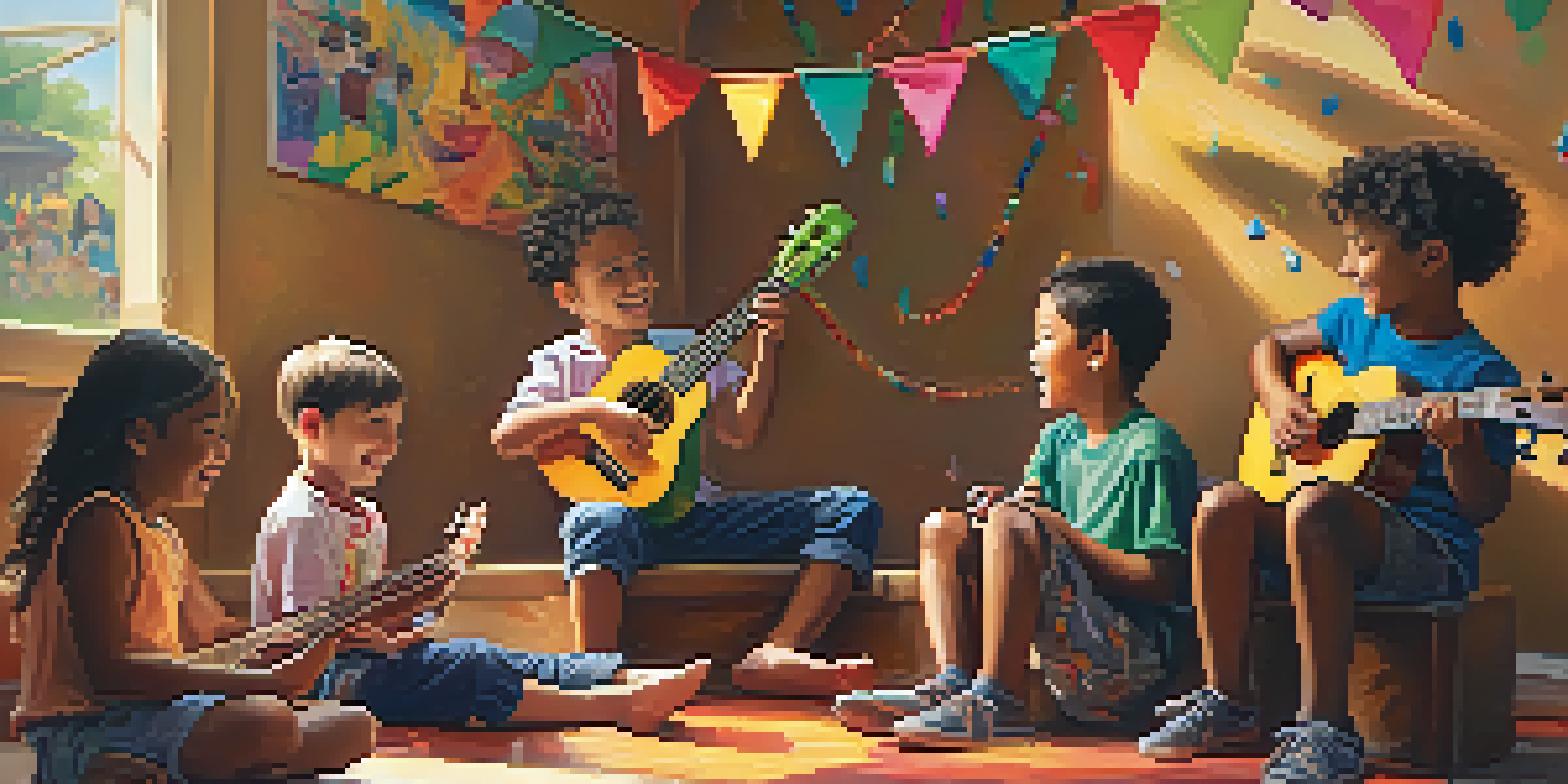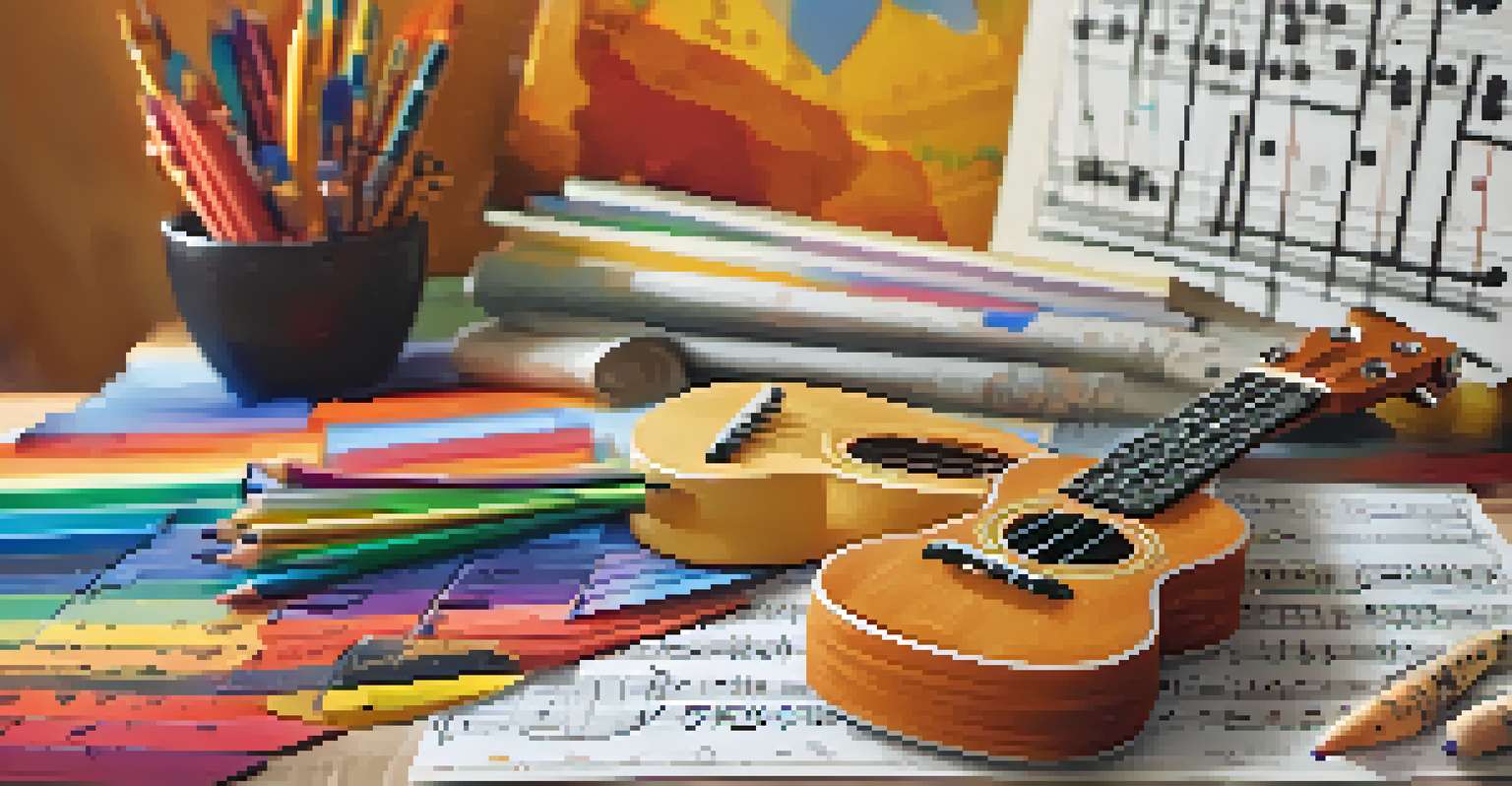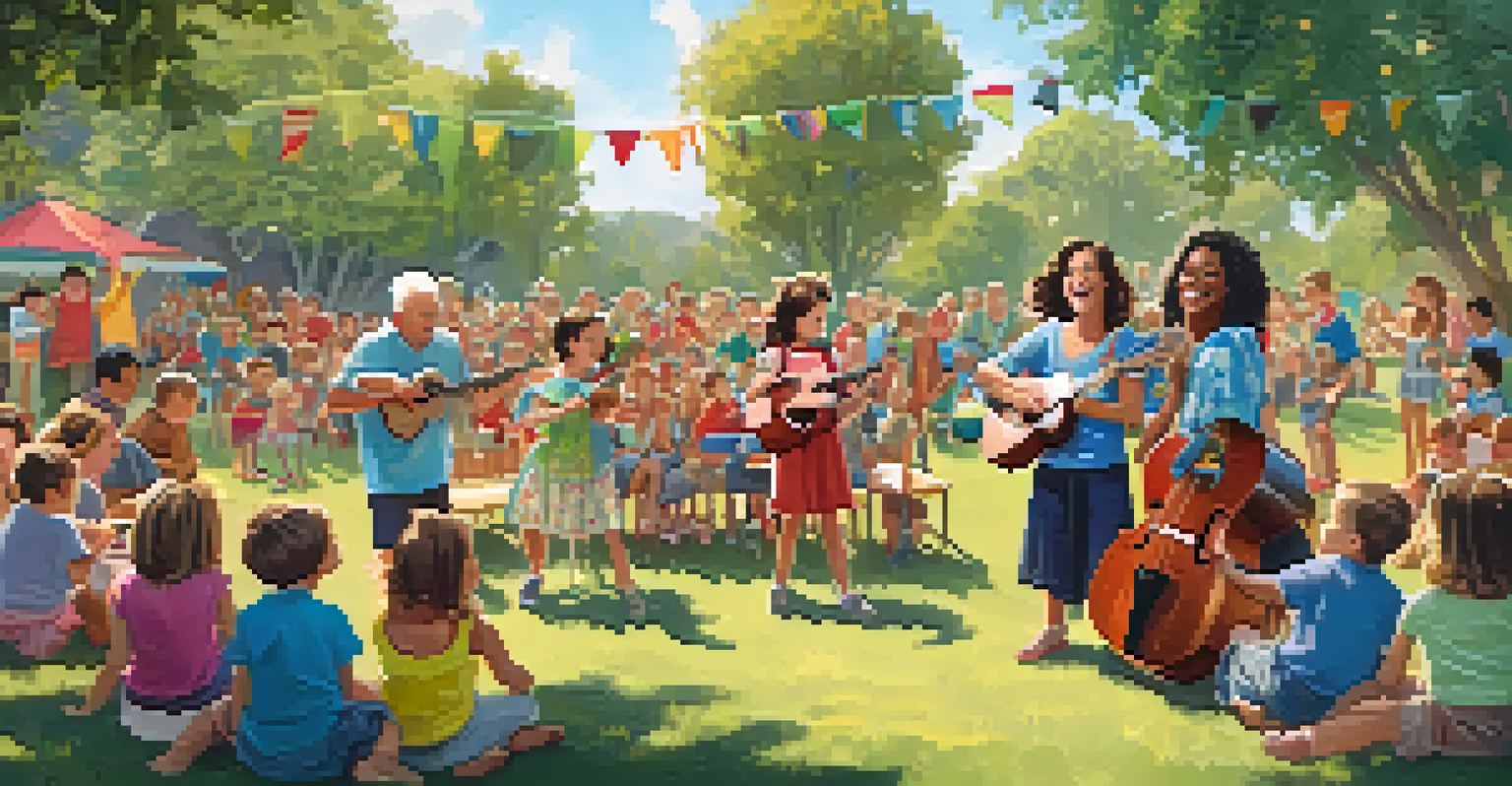Best Ukulele Techniques for Teaching Children Effectively

Understanding the Basics of Ukulele for Kids
Before diving into playing, it's essential to introduce kids to the ukulele itself. Explain its parts, like the body, neck, and strings, using simple language. Kids love hands-on learning, so encourage them to explore the instrument and make sounds with it.
Music can change the world because it can change people.
Once they're familiar with the ukulele, teach them basic strumming patterns. Simple downstrokes can be an excellent starting point. This foundational skill will help them feel more comfortable and confident as they progress.
Finally, keep the atmosphere light and fun. Incorporate games or challenges related to strumming and identifying notes, making it an enjoyable learning experience that fosters curiosity.
Engaging Children with Fun Songs
One of the best ways to keep kids motivated is by teaching them fun songs they already know. Familiar tunes can spark enthusiasm and help them relate to the music. Consider starting with classics like 'Twinkle, Twinkle, Little Star' or popular kids' songs.

As they learn these songs, encourage them to sing along. This not only reinforces their rhythm but also builds confidence in their vocal abilities. Singing together creates a sense of community and makes practice sessions enjoyable.
Make Learning Ukulele Fun
Incorporating games, familiar songs, and positive reinforcement creates an enjoyable atmosphere that motivates kids to learn.
Remember to celebrate their progress, no matter how small. Positive reinforcement, like applause or stickers, can significantly boost their self-esteem and encourage them to keep practicing.
Incorporating Visual Learning Techniques
Children often respond well to visual aids, so consider using colorful chord charts or diagrams. This can help them easily identify finger placements and understand the structure of songs. Visuals make learning more accessible and less intimidating.
The only thing better than singing is more singing.
You might also use videos to demonstrate techniques or songs. Watching an experienced player can inspire them and ignite their passion for learning. Plus, they can pause and replay sections to grasp challenging parts at their own pace.
Lastly, encourage them to draw their interpretations of music or the ukulele. This creative approach not only reinforces learning but also allows them to express themselves artistically.
Utilizing Group Lessons for Social Learning
Teaching ukulele in a group setting can enhance the learning experience. Kids often learn better when they can observe and interact with their peers. Group lessons also foster a sense of camaraderie, making practice feel less like a chore.
In these sessions, you can introduce fun team games that involve playing together, such as 'musical chairs' with ukuleles. This keeps the energy high and encourages collaboration among students.
Visual Aids Enhance Understanding
Using colorful chord charts and videos helps children grasp concepts more easily and makes the learning process less intimidating.
Moreover, group lessons provide opportunities for peer feedback. Kids can learn from each other, sharing tips and encouraging one another, which can be incredibly motivating.
Encouraging Regular Practice Routines
Establishing a consistent practice routine is crucial for young learners. Help them set achievable goals, like practicing for just 10 minutes each day. Short, focused sessions can be more effective than long, infrequent ones.
To make practice more engaging, suggest using a practice chart where they can mark their achievements. This visual representation of progress can serve as a motivating factor, encouraging them to keep going.
Additionally, consider incorporating rewards for meeting practice goals. Simple incentives, like a fun sticker or extra playtime, can make practice feel like a rewarding experience rather than a chore.
Incorporating Technology into Learning
In today's digital age, technology can be a powerful tool for teaching ukulele. There are many apps available that offer interactive lessons and games. These resources can make practice time more engaging and enjoyable for children.
You can also encourage kids to record themselves playing. Listening to their own progress can be incredibly rewarding, as they can hear how much they've improved over time. Plus, it adds an element of fun to the practice routine.
Encourage Regular Practice
Establishing consistent practice routines with achievable goals and rewards fosters progress and keeps young learners engaged.
Lastly, online communities or forums can provide additional support and inspiration. Connecting with other young ukulele players can motivate them to keep learning and exploring new techniques.
Building Confidence Through Performance Opportunities
Performance can be a fantastic way to build confidence in young ukulele players. Start small—perhaps a family gathering or a class showcase. This allows them to share their progress in a comfortable setting, helping to ease any performance anxiety.
Encourage them to express themselves while playing, whether through song choice or personal flair. This enhances their enjoyment and helps them feel a sense of ownership over their music.

As they gain confidence, consider organizing a mini-concert or participating in community events. These experiences can be invaluable for their growth, teaching them how to handle nerves and enjoy the spotlight.
Fostering a Lifelong Love for Music
Ultimately, the goal of teaching ukulele to children is to instill a love for music. Encourage exploration beyond the ukulele—introduce them to different instruments, styles, and genres. This broader exposure can help them discover their musical preferences.
Share stories of famous musicians and their journeys. Relatable anecdotes can inspire kids and show them that everyone starts somewhere. It’s important for them to understand that learning is a journey filled with ups and downs.
By nurturing their passion and providing a supportive environment, you're setting the stage for a lifelong appreciation of music. This foundation will serve them well, whether they continue to play the ukulele or explore other musical avenues.